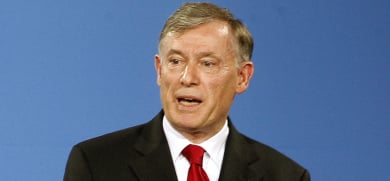“It must by now have become clear to every responsible thinking person in the (banking) industry that the international financial markets have become a monster that has to be put back in its place,” Köhler told weekly magazine Stern in an interview to be published on Thursday.
He said highly complex financial instruments and the ability to make massive leveraged investments with minimal capital were the primary causes behind the markets monster.
“We came close to a collapse of world financial markets,” Köhler, the former head of the International Monetary Fund, said.
Combined with the “bizarrely high compensation” for a few top managers and the finance industry had “massively disgraced” itself, according to Köhler. He said that banks have taken some responsibility for the crisis but that “a clear, audible mea culpa” is still outstanding.
In the wake of the recent subprime mess, Köhler called for greater regulation of global financial markets.
afp/dpa



 Please whitelist us to continue reading.
Please whitelist us to continue reading.